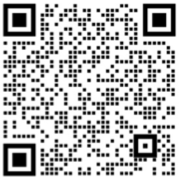In today's digital era, the value of data is increasingly recognized by businesses and individuals alike. To gather valuable data, web crawling and data collection have become essential activities.
However, frequent access to the same website may trigger anti-crawling mechanisms, leading to IP blocking or access restrictions.
To circumvent these issues, rotating proxies have emerged as a solution. This article will introduce the concept and working principles of rotating proxies, including IP rotation and User-Agent rotation technologies.
We will explore the advantages of using rotating proxies, such as improved crawling efficiency, bypassing blocks, and safeguarding privacy.
Additionally, we will analyze the practical effectiveness of rotating proxies in different scenarios, such as web crawling and data collection.

The Concept and Working Principles of Rotating Proxies
Rotating proxies are a type of network proxy technology that allows users to automatically switch between proxy servers over a period of time, thereby concealing their real IP addresses and identities. The primary rotating proxy technologies include IP rotation and User-Agent rotation.
IP Rotation: IP rotation involves changing the source IP address of requests to make them appear to come from different sources.
This approach prevents consecutive visits from the same IP address, reducing the risk of being blocked.
IP rotation is usually achieved by connecting to different proxy servers, each with a unique IP address.
User-Agent Rotation: The User-Agent is an HTTP request header field that identifies the software and version of the client making the request.
User-Agent rotation involves changing the User-Agent field of requests to simulate different types of client devices, making the server perceive requests as coming from various devices and browsers. This helps to bypass User-Agent-based anti-crawling mechanisms.
Advantages of Using Rotating Proxies
Improved Crawling Efficiency: Rotating proxies enable web crawlers to access target websites multiple times within a short period, accelerating data collection.
As the real IP address is continuously hidden by switching proxies, crawlers can reduce the risk of being recognized and blocked by the target website.
Bypassing Blocks and Restrictions: Many websites employ anti-crawling mechanisms that limit the frequency of requests from the same IP address.
Rotating proxies can bypass these blocks and restrictions, ensuring the smooth progress of data collection.
Privacy Protection: Rotating proxies conceal users' real IP addresses and identity information, increasing anonymity and privacy protection. This is particularly important for enterprises and individuals conducting sensitive data collection or user behavior analysis on the web.
Practical Effectiveness of Rotating Proxies in Different Scenarios
Web Crawling: Rotating proxies are essential tools for web crawlers in domains such as search engines, data mining, and competitive intelligence.
They help crawlers evade anti-crawling mechanisms, improve crawling efficiency, and protect user privacy.
Data Collection: In large-scale data collection and analysis processes, rotating proxies ensure data integrity and accuracy.
By randomly switching proxies, data collectors can avoid missing any crucial information and prevent blocking issues resulting from frequent access.
Accessing Restricted Resources: Some websites or resources may impose access restrictions based on users' geographical location or identity.
Using rotating proxies allows users to simulate different user identities and geographic locations, enabling access to restricted resources and expanding the range of permissible access.

Conclusion
Rotating proxies are an effective network proxy technology that allows users to switch between proxy servers to hide their real IP addresses and identities.
By employing IP rotation and User-Agent rotation technologies, rotating proxies can bypass anti-crawling mechanisms, improve crawling efficiency, and protect privacy.
In scenarios such as web crawling, data collection, and accessing restricted resources, rotating proxies play a crucial role in ensuring data integrity, improving user access experience, and safeguarding privacy.




